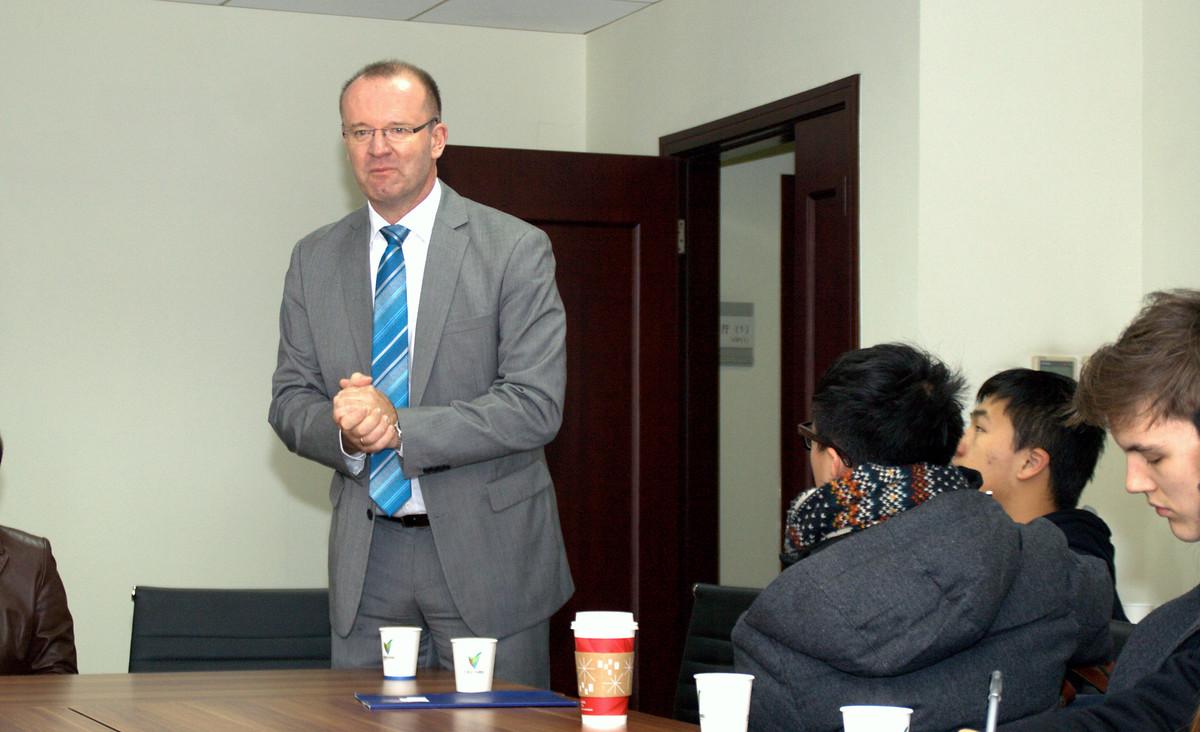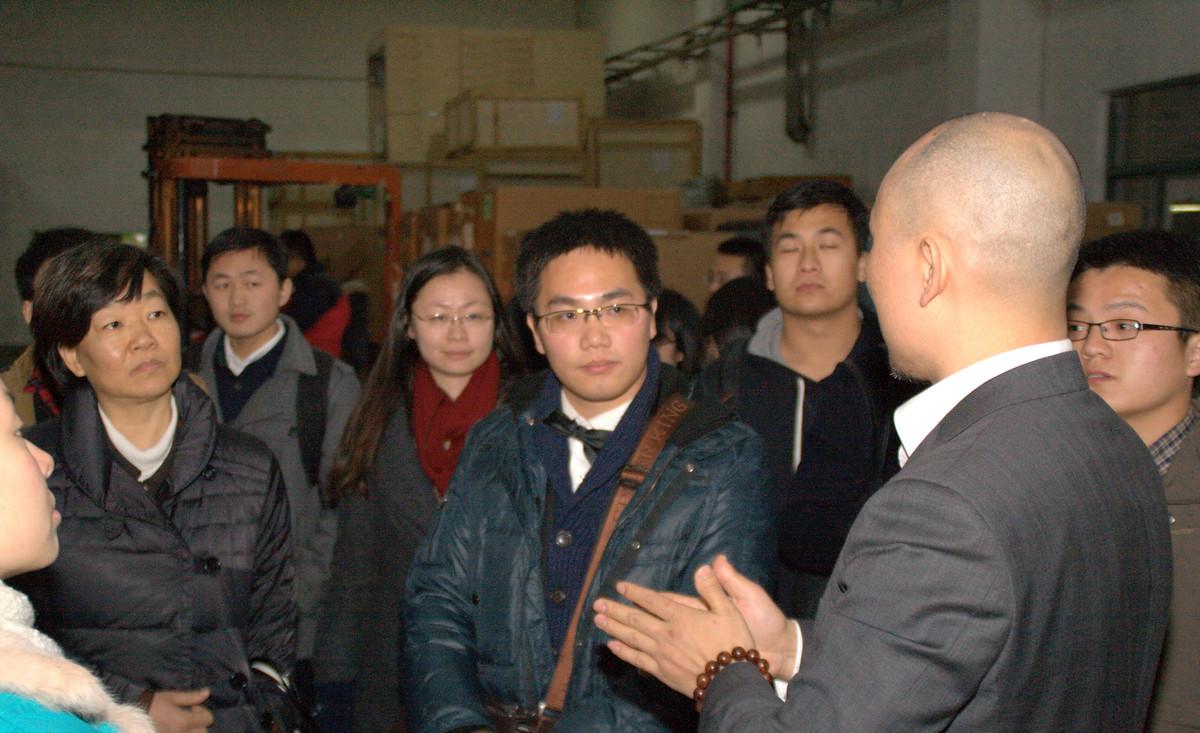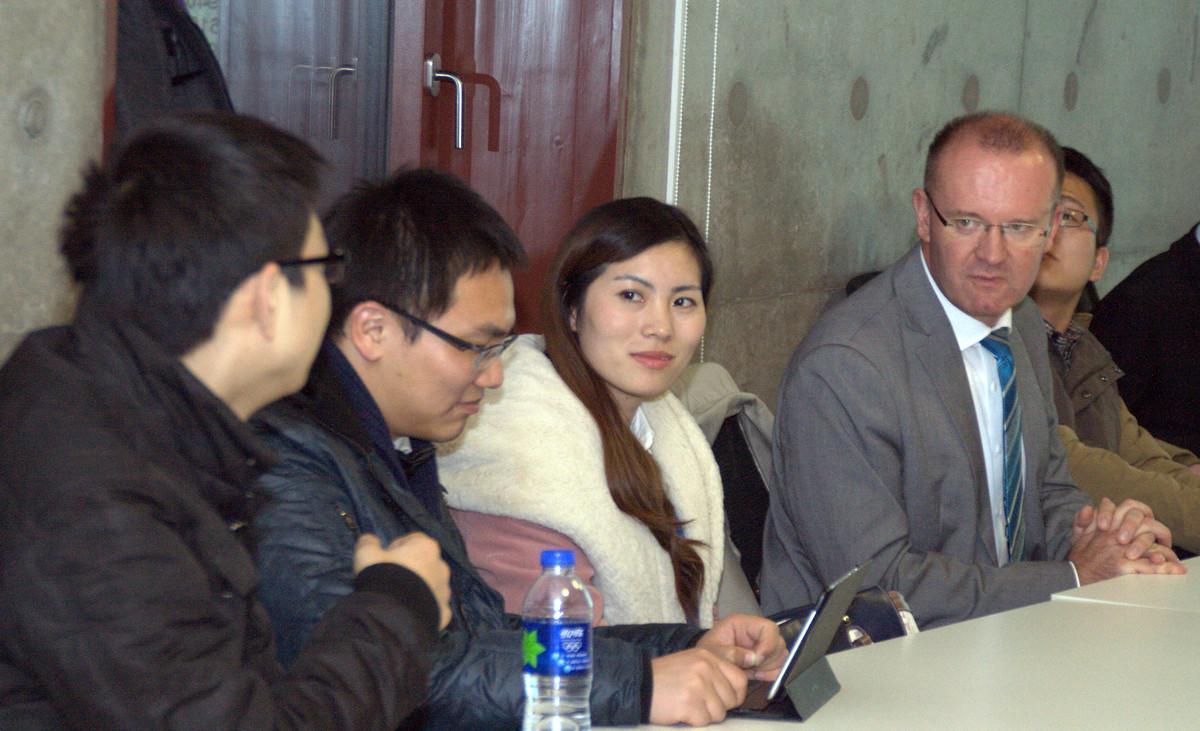Event reports
Dr. Peter Hefele, head of the Shanghai office, highlighted in his welcoming address the importance of the scholarship program with the SUIBE. Field trips were one of the ways to broaden students’ horizons and to enrich them with key knowledge on the Chinese domestic markets and international business.
Mr. YAN Lifeng, deputy director of the zone’s administration, offered the students an overview over the economic significance of the Free Trade Zone and the innovations that were introduced since its opening in September last year. He stressed that enterprises settling in the SFZ had already acquired a set of possibilities to broaden their operations. The introduction of a “negative list” now made it much easier for companies to determine their status in the SFZ: now, only industries not eligible to operate in the zone were listed. All other sectors were generally accepted.
Mr. ZHANG Yun, CEO of the Yun He Logistics Ltd, talked about the possibilities and challenges that his small enterprise faced in the new Free Trade Zone. He named rising rental cost as one of the main factors driving smaller manufacturers out of business.
Mr. Fabian Pass, finance manager at Grohmann Engineering, a German R&D facility and supplier for high end manufacturers with a subsidiary in Shanghai, introduced the zone’s pros and cons from the view point of a German company. He was pleasantly surprised by both the ease in bureaucracy and the indiscriminative service offered to foreign invested companies. However, he noted that many of the advantages that were promised and hoped for were not put into place. Especially financial services that are crucial for efficient international operations were not yet offered, i.e. bank accounts in foreign currency and free convertibility of the RMB.






